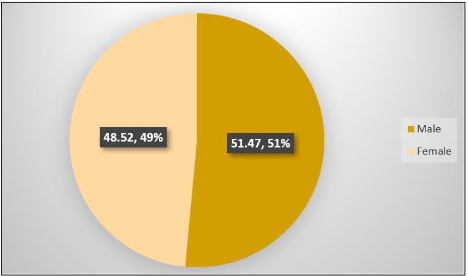Psychology Behind Unemployment of Transgenders in India with Special Reference to Social Policy Framework
Main Article Content
Abstract
In India, the transgender community is a marginalised group that doesn't have the same basic rights and privileges as cisgender and heterosexual people. Society labels transgender people as deviant, abnormal, and sick because their gender and sexual identity don't fit the norm. This has bad effects on their minds and makes them more likely to have suicidal thoughts, severe depression, and anxiety. Trans people are often turned down for jobs and other economic opportunities and those who do get jobs end up making a lot less than their co-workers. Reason? Social stigma and discrimination. Education has always been one such arena where people from all strata of society have looked upon it, whether to receive help or to portray feelings, to entertain or to inform. The idea of this may seem very simple but produces an everlasting impact on the minds of the readers who are seeking a change in the world. The very same idea has been reviewed by the transgender community in India who are writing their narratives to depict their struggle, highlight injustice, and demand equality. This research has been conducted with the aim of social policy framework & psychology behind transgender unemployment. For this research, common people have been selected on the basis of respondents' demographic profiles where age and education level were more important. Findings indicated that the risk to denial of employment for qualified transgender persons & assistance for self-employment (e.g., loans, grants, microcredits) are important factors that government social policies must frame in these related perspectives for solving the unemployment problem among transgenders.

